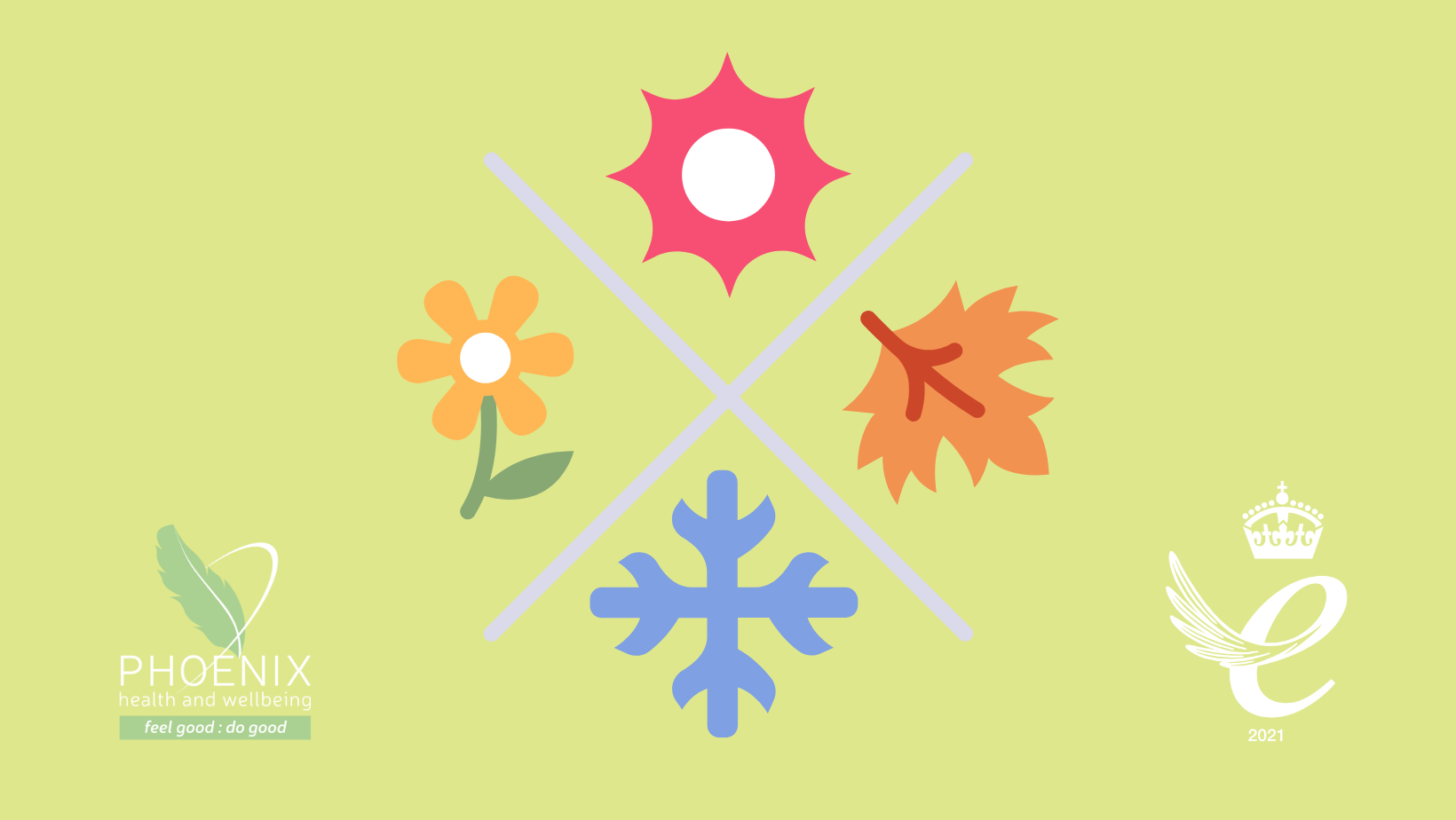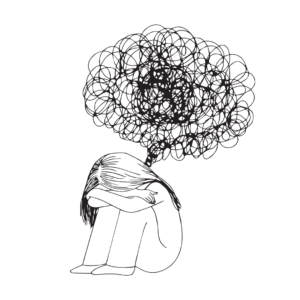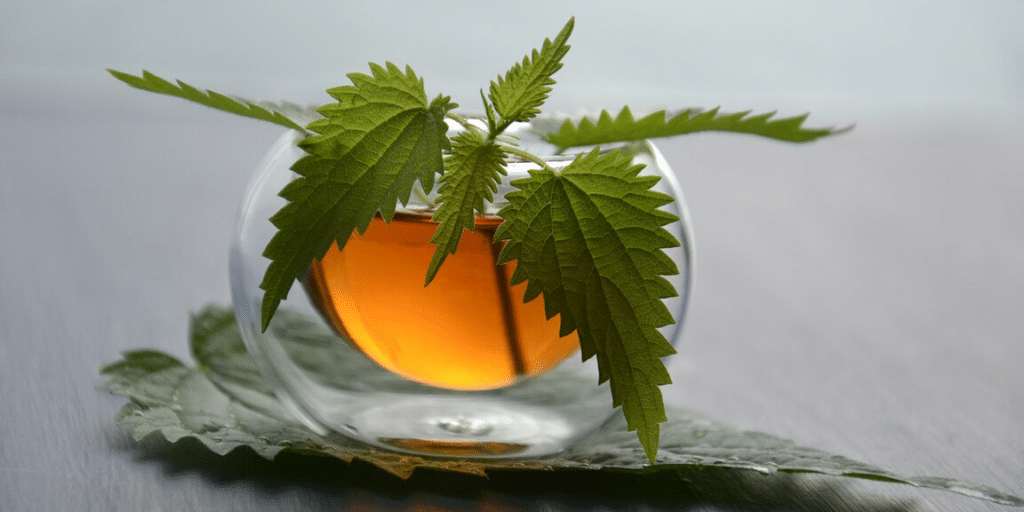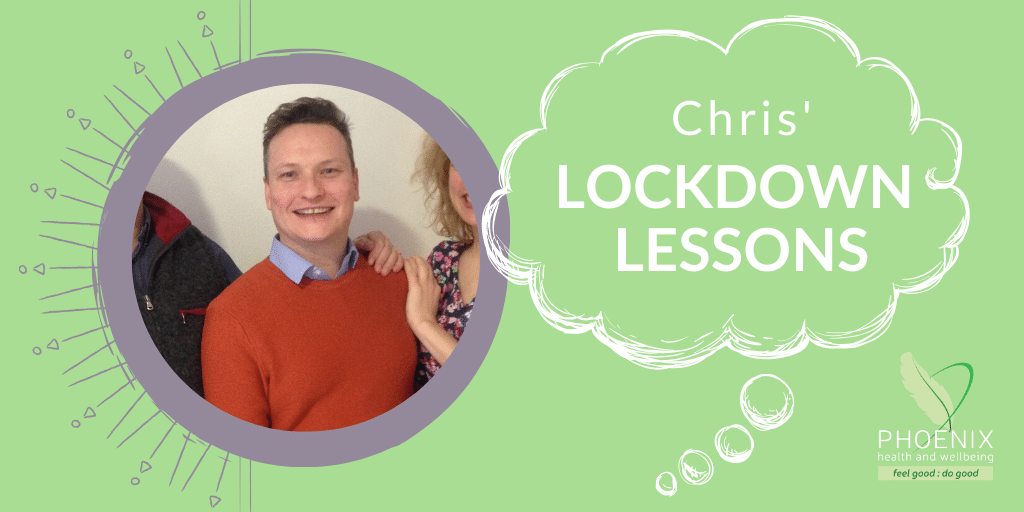
Time for an endorphin boost!
I hate to say it, but summer is definitely drawing to a close! The tell-tale signs are all around. The air is slightly crisper in the morning and the grass slightly wetter from the dew (or probably rain). Days are shortening and there are even some trees starting to change colour!
Time Marches On
These changes in the seasons can be a positive. Some people look forward to the colourful days of autumn and the short days of winter. For others the darkening days can lead to Seasonal Affective Disorder or a return of depression or low mood.
Spot the Triggers
If you are someone who struggles at this time of year it is important to recognise what triggers your low mood. Is it a reduction in natural light levels? Or perhaps you see less of friends as the days shorten. 
Some people’s low mood can be triggered by a return to the usual routine. Children return to school and parents return to work. Holidays are often behind us and the next break of Christmas seems a long time away.
It’s a really good idea to take a few moments now, before the seasonal change really takes hold, to reflect on how you feel. Make two columns on a page. On one side list what makes you feel low. On the other list what makes you feel good. Now try to think about what you could do to reduce the triggers that lower your mood and increase those that lift your spirits.
This sounds too simplistic and admittedly nothing is perfect. It probably isn’t possible to completely get rid of the mood lowering factors, but can you reduce them? Also sometimes seeing things written on a page makes it easier to focus and find ways to address issues.
Endorphins – natures feel good hormones
Endorphins are hormones or chemical messengers, that are released when your body feels pain or stress. They attach to your brain’s reward center to boost your sense of wellbeing and make you feel better.
Where do endorphins come from?
They are released by the pituitary gland and hypothalamus in the brain. There are 20 different types of endorphins and certain ones, beta-endorphins, have a stronger pain-relieving effect on the body than morphine. They can essentially turn off pain by blocking the nerve cells that receive pain signals.
The many benefits of endorphins
Endorphins have been found to:
- Ease the symptoms of depression – especially those endorphins released during exercise
- Reduce levels of stress and anxiety
- Improve self-esteem so that we feel better about ourselves
- Regulate appetite – so endorphins can help to make you feel less hungry
Boost your endorphin levels
There are times when we could all do with higher levels of endorphins – so how do we get the brain to release these wonderful hormones?
- Exercise
The best way of releasing endorphins is by exercising and the more you exercise the more endorphins you will produce.
The good news is that you don’t have to run a marathon to get an endorphin boost. This happens whether you are doing exercises sitting in a chair, going for a gentle walk or running a sprint. What matters is that you do exercise appropriate to your level of fitness. It is meant to be gentle and comfortable not painful!
2. Get out into nature
The connection between good mental health and nature is a well proven fact. There are many studies about this. Lackey et al wrote a systematic review and found that “contact with nature generates an increase in positive emotions and feelings of vitality, and a decrease in negative emotions: it also provides relief from negative tiredness and an improvement in our attention span”
So, it is a fact that being in nature is good for us. It calms our nervous system down reducing anxiety and depression. But did you know that simply viewing nature can boost your mood and reduce negative feelings. Even if you can’t go out simply look at pictures of trees, flowers, birds – maybe on TV – this will help lift your mood.
3. The power of a smile
It’s a fact that smiles are contagious. If you approach someone with a smile on your face the chances are they will smile back. There’s chemistry in a smile. When you smile the very act results in the release of endorphins. So, by smiling you are making yourself happier and spreading that happiness to others.
Here’s the smile process
- The brain reacts to a positive stimulus by releasing endorphins
- The brain also sends a signal to our facial muscles to contract and smile
- The contracting muscles fire a message back to the brain to say “Wow we are feeling good”
- Our brain then releases more endorphins, and we feel even happier!
So, we have this positive feedback loop
You can fake this message too. If you just smile, without any positive stimulus, the smile process still occurs. So simply by contracting your facial muscles and smiling you will feel happier!
4. Random acts of kindness – give and you get
Random acts of kindness are well documented. We know that we feel good if someone does a kind act for us. But did you know that giving also creates a feeling of positivity in the person doing the gifting? This doesn’t have to be a monetary thing. Giving can be a simple as helping someone across the road, checking in on a neighbour or volunteering for a charity.
___________________________________________________________________________
Phoenix Health & Wellbeing is a Charity and social enterprise. We use the proceeds of your treatment to subsidise those who would not otherwise be able to access our therapies. Roughly £4 to every £10 spent with us will go to help others.
If you would like more information about Phoenix Health and Wellbeing click here . If you would like to know more about our other therapies click here. For information on our charitable work follow this link or call us on 0113 234 0181
Opening times:
Monday to Thursday from 10:00 to 20:00
Friday and Saturday from 11:00 to 16:00
Sunday closed.




